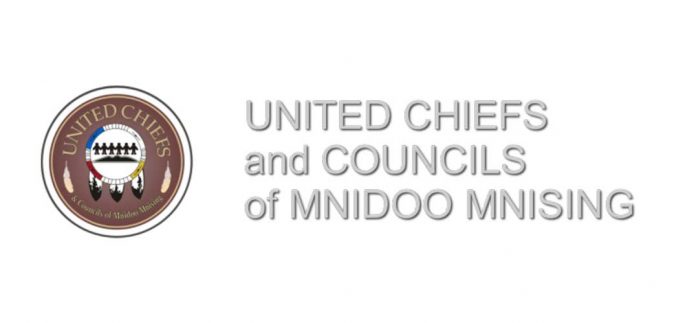MANITOULIN—The Chiefs and Trustees of the Robinson Huron Treaty Litigation Fund (RHTLF) are ramping up pressure on the Canadian and Ontario governments to fulfill their obligations under the Robinson Huron Treaty following a pivotal Supreme Court ruling. During meetings held on October 16 and 17, the 21 in Little Current. Chiefs and Trustees reaffirmed their commitment to renewing the treaty and demanded immediate action from the Crown to honour its longstanding promises.
The call to action comes after the Supreme Court’s Restoule decision, issued on July 26, 2024, which described the Crown’s failure to adjust treaty payments for nearly 150 years as a “longstanding and egregious” breach that “severely undermined both the spirit and substance of the Robinson Treaties.” Despite entering a $10 billion settlement in January 2024 for past compensation—split equally between Canada and Ontario—current payments remain stuck at $4 per person per year, a rate unchanged since 1875.
The Supreme Court ruling underscored the necessity for “permanent negotiations” to fulfill the Treaty’s intended “relationship of trust and mutual assistance” and urged the Crown to act now to rectify the nation-to-nation alliance. The Justices called on both governments to “return to the council fire,” the traditional Anishinaabe decision-making practice, to rekindle the enduring relationship envisioned by the treaties.
Despite the Supreme Court’s directives, letters sent in August by the RHTLF to federal Minister of Crown-Indigenous Relations Gary Anandasangaree and Ontario Minister of Indigenous Affairs Greg Rickford, urging immediate steps to establish a Council Fire, have gone unanswered. The Chiefs and Trustees reiterated the need for Ontario and Canada to abide by the Supreme Court’s decision and initiate negotiations to implement the Treaty Augmentation Promise going forward.
RHTLF Chairman Mike Restoule emphasized that the treaty’s foundation rests on Anishinaabe Law, a fact supported by the Supreme Court’s recognition that treaty discussions in 1850 involved traditional Council Fire practices. “Our ancestors signed this treaty through Anishinaabe Law protocols, which must now be treated as equal to Common Law,” he stated. The chiefs plan to hold their own internal Council Fire ceremonies to ensure unity as they prepare for negotiations.
Duke Peltier, trustee and spokesperson for the RHTLF, said, “Our ancestors entered the treaty based on promises of prosperity for future generations. The Crown has breached that commitment. Now, with past compensation settled, we must work together to strengthen our treaty relationship, recognizing Anishinaabe Law as equally binding.”






